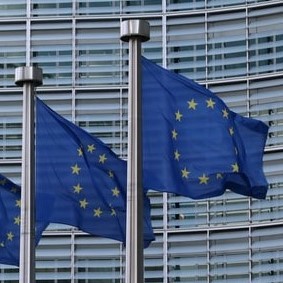Eurobites: Nvidia seeks EU approval for Arm deal
Also in today's EMEA regional roundup: MTN strikes new mobile money partnership; Slovak Telekom opts for Ekinops; Three UK will resurrect EU roaming charges.

Also in today's EMEA regional roundup: MTN strikes new mobile money partnership; Slovak Telekom opts for Ekinops; Three UK will resurrect EU roaming charges.
A European Commission filing on Wednesday has revealed that US chipmaker Nvidia is officially seeking EU antitrust approval for its $54 billion acquisition of Arm, the chip design company that is based in the UK but owned by Japan's SoftBank. As Reuters reports, it is anticipated that EU regulators will share the concerns of the UK's Competitions and Markets Authority, which has already indicated that an in-depth investigation into the proposed deal will be necessary because it raises serious competition concerns. The European Commission last month hinted that it was likely to launch a formal investigation into the deal. (See Eurobites: EU launches formal investigation into Nvidia-Arm deal and UK watchdog flexes muscles over Nvidia's Arm deal.)
MTN has announced a mobile money partnership with payments technology company Flutterwave, which will allow businesses integrating Flutterwave in Cameroon, Côte d'Ivoire, Rwanda, Uganda and Zambia to receive payments via MTN Mobile Money (MoMo). As of end June 2021, MTN MoMo had 48.9 million active users and 581,514 merchants.
Deutsche Telekom subsidiary Slovak Telekom has chosen France's Ekinops to upgrade its legacy symmetrical DSL network. The operator will be using Ekinops' remotely provisioned ONE521 router.
Three UK has joined EE and Vodafone in planning to resurrect roaming charges within the EU as part of Britain's Brexit bonus. From May 23, 2022, customers who have taken out a new contract or upgraded with Three from October 1, 2021, will pay a charge of £2 per day when roaming within the EU and £5 a day when roaming outside the EU. (See Desperation shows as BT and Vodafone resurrect roaming.)
Streaming platform HBO Max is heading to Europe, launching in the Nordics, Spain and Andorra on October 26, and with at least 14 more countries to be added to its footprint in 2022. HBO Max will be unveiled to Europe at a virtual launch event next month.
A new report from UK communications regulator Ofcom reveals that nearly 12 million (40%) of UK homes can now get gigabit-capable broadband, a figure that has increased from 37% in January. This includes full fiber and the fastest cable Internet packages. Ofcom adds that the "vast majority" of UK homes (96%) can get superfast broadband (download speeds of at least 30 Mbit/s), while almost all UK homes have access to a "decent" connection, decent in this definition being 10Mbit/s download and 1Mbit/s upload. However, around 134,000 UK properties are still unable to get a decent connection, the report adds.
Nokia claims it has "broken new ground" with Vodafone Turkey in a demonstration of a 1 Tbit/s per channel coherent transmission over the operator's live optical network. According to Nokia, the companies proved a capacity increase of 150% over a single channel coherent transmission, and the ability to scale network capacity up to 70 Tbit/s per fiber.
Businesses recognize that improving connectivity for those working at home would benefit workers and their wider organization but less than half of managers believe that employers should be responsible for "fit for work" connectivity at home. That's the rather worrying finding from a study carried out by UK altnet CityFibre in partnership with the Chartered Management Institute (CMI). If "hybrid working" is indeed the way forward, a rethink on the part of employers may be required...
— Paul Rainford, Assistant Editor, Europe, Light Reading
Read more about:
EuropeAbout the Author(s)
You May Also Like












